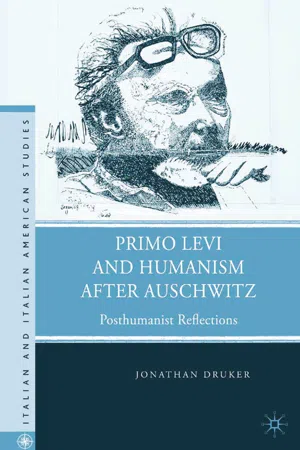
This is a test
- English
- PDF
- Available on iOS & Android
eBook - PDF
Book details
Table of contents
Citations
About This Book
This innovative study reassesses Primo Levi's Holocaust memoirs in light of the posthumanist theories of Adorno, Levinas, Lyotard, and Foucault and finds causal links between certain Enlightenment ideas and the Nazi genocide.
Frequently asked questions
At the moment all of our mobile-responsive ePub books are available to download via the app. Most of our PDFs are also available to download and we're working on making the final remaining ones downloadable now. Learn more here.
Both plans give you full access to the library and all of Perlego’s features. The only differences are the price and subscription period: With the annual plan you’ll save around 30% compared to 12 months on the monthly plan.
We are an online textbook subscription service, where you can get access to an entire online library for less than the price of a single book per month. With over 1 million books across 1000+ topics, we’ve got you covered! Learn more here.
Look out for the read-aloud symbol on your next book to see if you can listen to it. The read-aloud tool reads text aloud for you, highlighting the text as it is being read. You can pause it, speed it up and slow it down. Learn more here.
Yes, you can access Primo Levi and Humanism after Auschwitz by J. Druker in PDF and/or ePUB format, as well as other popular books in History & European History. We have over one million books available in our catalogue for you to explore.
Information
Table of contents
- Cover
- Contents
- Acknowledgments
- Introduction
- 1 Judaism, Enlightenment, and the End of Theodicy
- 2 The Shadowed Violence of Culture
- 3 Survivor Testimony and the Hegelian Subject
- 4 Ethics and Ontology in Auschwitz and After
- 5 Traumatic History
- 6 The Art of Separation from Chemistry to Racial Science
- 7 The Work of Genocide
- Conclusion: A New Humanism?
- Notes
- Index